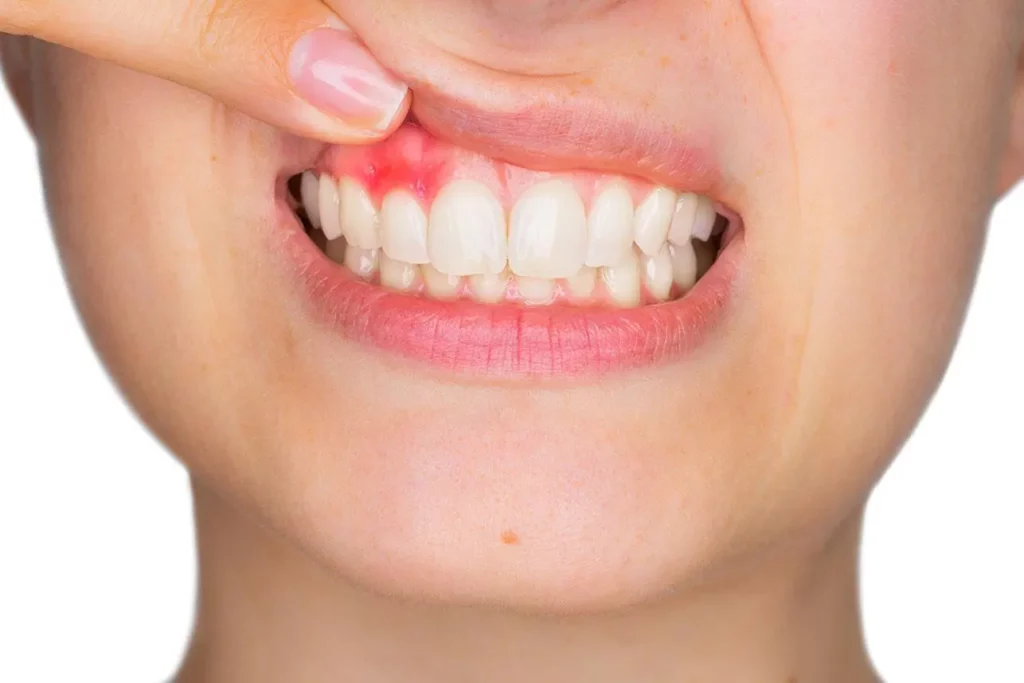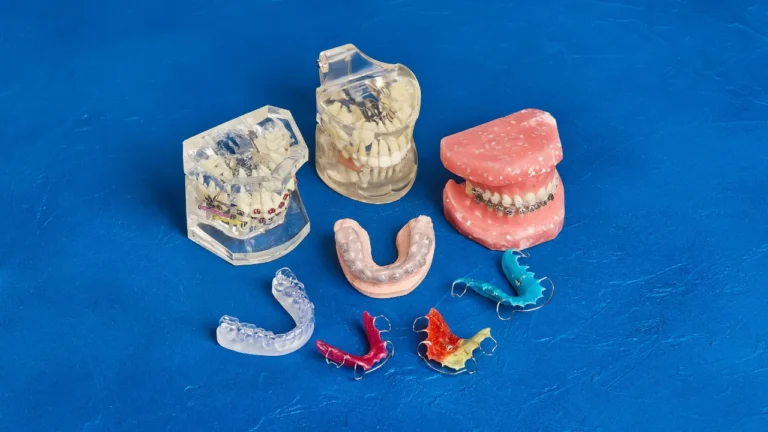Here are the common symptoms of dental problems:
- Tooth pain or sensitivity
- Swelling
- Tender gums
- Bad breath
- Holes or chips in teeth
- Changes in the fit of upper and lower teeth
- Changes in the fit of dentures
- Pain or discomfort while biting or chewing
- Discoloration or darkening of teeth
- Loose teeth
If you experience any of these symptoms, it is recommended to see a dentist for proper diagnosis and tr
I. Toothache
- A toothache is a common symptom of dental problems and is often caused by an infection, decay, or injury to the tooth.
- The pain can range from a dull ache to a sharp, shooting pain and can be accompanied by swelling or tenderness in the gums.
- A toothache may also be accompanied by a fever, indicating a possible infection.
II. Sensitivity to hot or cold temperatures
- Sensitivity to hot or cold temperatures is a common symptom of dental problems and is often caused by exposed tooth roots or enamel loss.
- When the roots of the teeth are exposed, they can become sensitive to temperature changes, causing pain and discomfort.
- Enamel loss can also lead to sensitivity, as it exposes the sensitive dentin layer of the tooth.
III. Swollen gums
- Swollen gums are a common symptom of dental problems and can be caused by a variety of factors, including gum disease, injury, or an abscess.
- The gums may be red, tender, and bleed easily, indicating the presence of gum disease.
- If left untreated, gum disease can lead to tooth loss and other serious health problems.
IV. Bleeding gums
- Bleeding gums are a common symptom of dental problems and are often caused by gum disease.
- When gums are healthy, they should not bleed, even when brushing or flossing.
- If gums are bleeding, it is a sign of inflammation and infection and requires immediate attention from a dentist.
V. Receding gums
- Receding gums are a common symptom of dental problems and can be caused by gum disease, aging, or aggressive brushing.
- When gums recede, they can expose the roots of the teeth, causing sensitivity, pain, and an increased risk of tooth decay.
- Receding gums can also affect the appearance of the smile, making teeth look longer than they should.
VI. Bad breath
- Bad breath is a common symptom of dental problems and can be caused by poor oral hygiene, gum disease, or certain medical conditions.
- If bad breath persists despite good oral hygiene, it may be a sign of a more serious dental problem and requires attention from a dentist.
VII. Loose or missing teeth
- Loose or missing teeth are a common symptom of dental problems and can be caused by a variety of factors, including injury, decay, gum disease, or tooth grinding.
- Loose or missing teeth can affect chewing and speaking and can also lead to other dental problems, such as shifting teeth and bite problems.
VIII. Pain when biting or chewing
- Pain when biting or chewing is a common symptom of dental problems and can be caused by tooth decay, a cracked tooth, gum disease, or a misaligned bite.
- Pain when biting or chewing can make eating uncomfortable and can also lead to headaches and jaw pain.
- If pain when biting or chewing persists, it is important to see a dentist for a proper diagnosis and treatment plan.
Dental problems can cause a variety of symptoms, and it’s important to be aware of these symptoms so you can get the treatment you need.
If you experience any of the symptoms listed above, it’s important to see a dentist as soon as possible to determine the cause and get the appropriate treatment.
By taking care of your teeth and gums and seeing a dentist regularly, you can maintain good oral health and avoid dental problems.
Causes of dental problems
Dental problems can be caused by a variety of factors, including:
- Tooth decay
- Gum disease
- Bruxism (teeth grinding)
- Trauma to the mouth
- Poor oral hygiene
- Certain medical conditions
Diagnosis of Dental Problems A dentist is typically the best professional to diagnose and treat dental problems.
During a clinical examination, the dentist will look for signs of dental problems and may use diagnostic tools, such as dental X-rays and diagnostic tests, to get a better understanding of the problem.
When to see a dentist
- It is important to seek professional dental care when experiencing any of the common symptoms of dental problems.
- Some symptoms, such as a toothache, sensitivity to hot or cold temperatures, or swelling in the gums, may indicate a serious dental problem that requires immediate attention from a dentist.
- Other symptoms, such as bleeding gums, bad breath, or loose or missing teeth, may indicate the presence of gum disease or other serious dental problems that require prompt treatment.
The Importance of early treatment
- Early treatment is crucial for maintaining good oral health and preventing serious dental problems from developing.
- Treating dental problems in their early stages can prevent the need for more extensive and expensive treatments later on.
- Regular dental check-ups can help to catch dental problems early, before they become more serious, and ensure that the right treatment is provided at the right time.
- Additionally, early treatment can help to prevent pain, discomfort, and other symptoms associated with dental problems, allowing individuals to maintain good oral health and a confident smile.
Prevention and treatment of dental problems
- Good oral hygiene
- Regular dental check-ups
- A healthy diet
- Avoiding harmful habits like smoking and excessive alcohol consumption can help prevent dental problems.
If you already have a dental problem, your dentist will create a customized treatment plan to address it.
Treatment options may include fillings, crowns, root canal therapy, and other procedures as needed.
Take away
Identifying the symptoms of dental problems is crucial for maintaining good oral health and preventing further complications.
If you experience any of the symptoms mentioned above, don’t hesitate to seek dental care.
A dentist can diagnose and treat your dental problems and help you maintain good oral health.
Book an appointment with your dentist today to take the first step towards a healthy, confident smile.






1 thought on “What Symptoms Indicate Dental Problems?”
My teeth are badly worn down and require urgent attention.I am 68 years old and still have my own teeth which I would like to keep.
I reside in Durban and am in dire straights to have a smile .Please could you help or recommend a Dentist that is prepared to allow me to pay off the required treatment for my teeth.
Thanking you in advance.
Msg.Patricia Baker.
0763320204